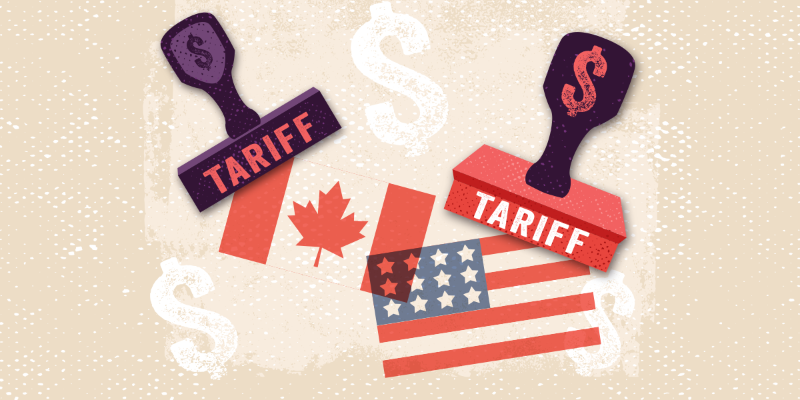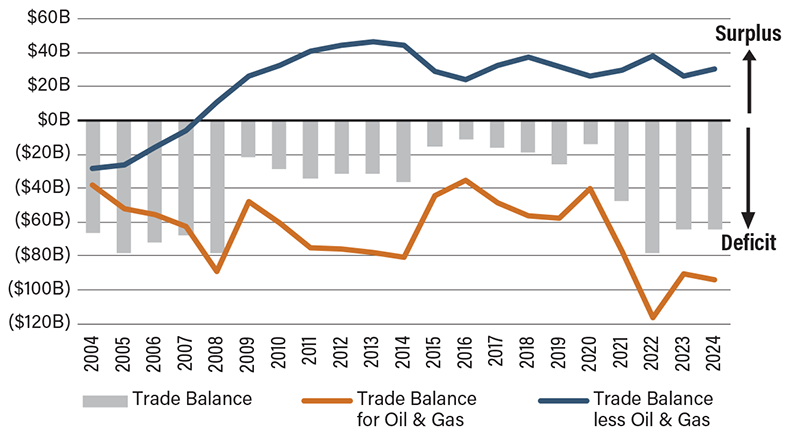What’s Up with Canadian Trade Deficit, Eh?

There was a time when you read your newspaper in the morning and Canada was nowhere in the headline. That time has ended. The United States has entered a trade war with Canada. A 25% tariff on Canadian imports took effect March 4. Canada immediately retaliated with a 25% tariff on $30 billion of U.S. imports and is expected to impose a similar tariff on an additional $125 billion in 21 days’ time.
Although President Donald Trump has pointed out many benefits of tariffs—increased revenue, bringing jobs back to the country and helping U.S. producers—it is unclear whether the president intends for the tariff on Canadian goods to close the U.S.-Canada trade deficit or to serve as a negotiation tool for something else. The United States ran a trade deficit of $64 billion with Canada in 2024. That may sound outrageous, but a deeper dive into the trade account tells a more compelling story. Excluding oil and gas, the United States has run a surplus with Canada—totaling more than $30 billion in 2024. That’s right: Our northern neighbor is actually a net buyer of U.S. goods. From agricultural products to textiles and computers, Canadians buy more from Americans than they sell to us.
The overall trade deficit happens because of the huge oil and gas trade deficit, amounting to $94 billion. The United States buys oil from Canada because the two complement each other. American oil is “light crude,” which is easier to process but more expensive, while Canadian oil is “heavy crude,” which is cheaper but requires different refinery equipment. Many U.S. refineries are designed specifically to process this heavy oil. Together, American and Canadian oil have strengthened North American oil production and reduced reliance on other countries. Similarly, Canadian natural gas imports supplement American gas to ensure a supply-and-demand balance here and in Europe. If you take into account Canada’s power supply to neighboring states, especially in the Northeast, the energy trade deficit is even bigger. All this means that if you exclude energy trade with Canada, the U.S. has enjoyed a big goods trade surplus.
American energy producers are in no way struggling to compete or find buyers and don’t need help from tariffs. But what about American producers of other goods that Canada buys? How will this trade war impact them?
US–Canada Trade Balance

Source: U.S. Census Bureau.
